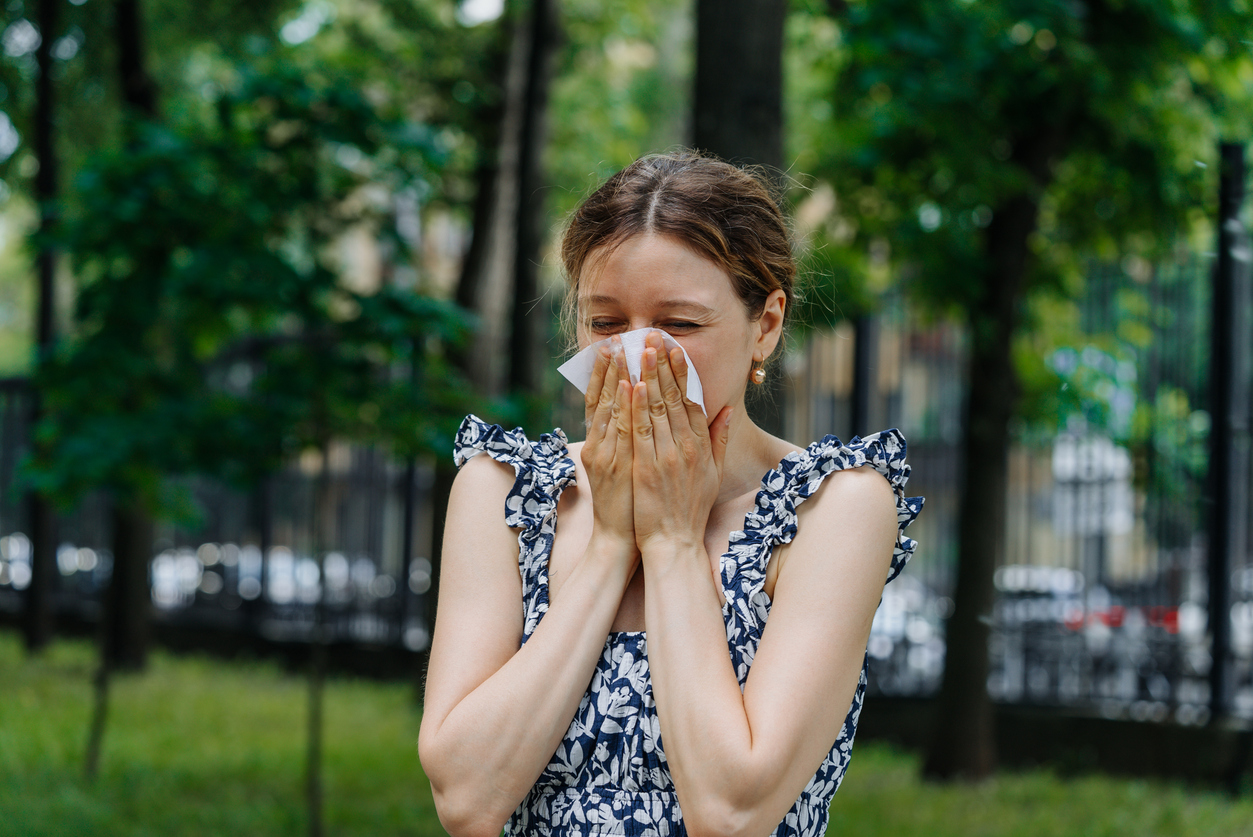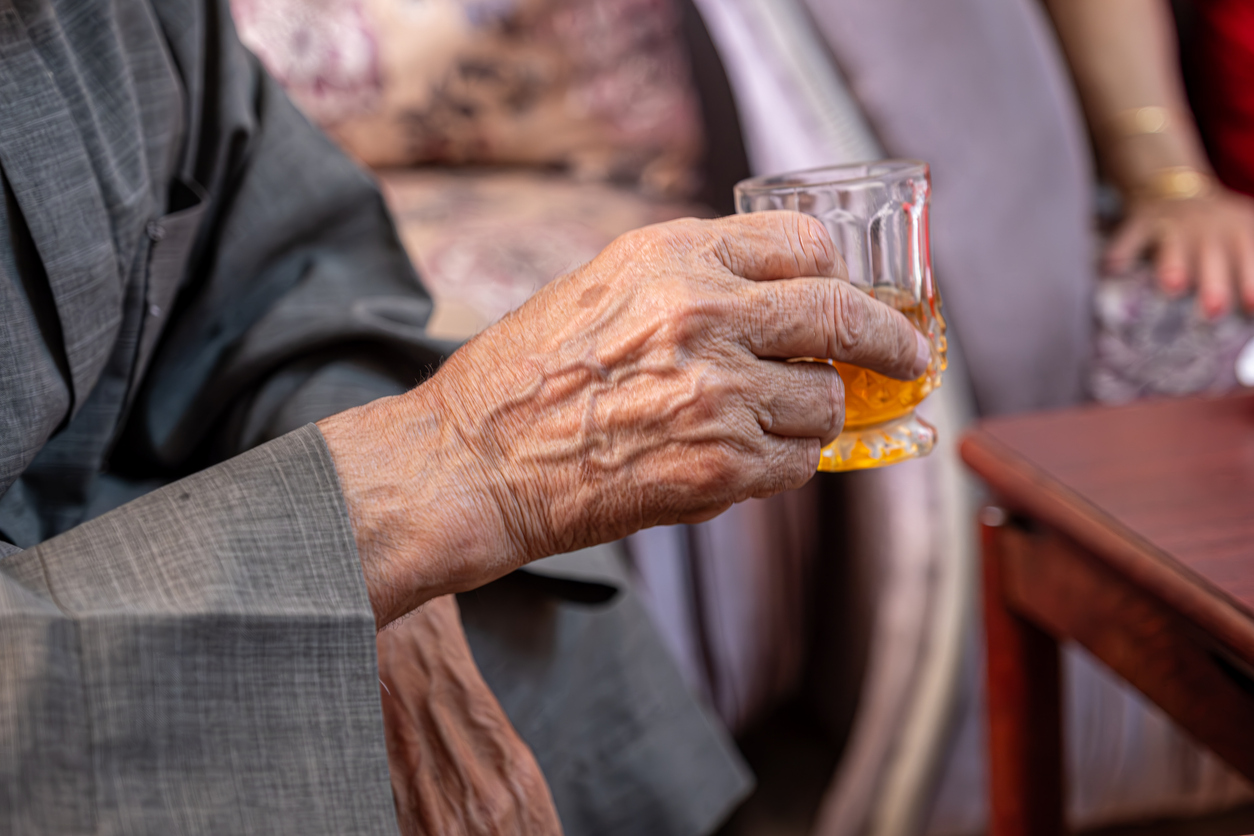Press reviews
By Ana Espino | Published on January 30, 2026
| 3 min read
Hypertension (HTN) is a chronic cardiovascular disease characterized by a sustained elevation of blood pressure. It is often silent but strongly associated with severe complications, including stroke, myocardial infarction, heart failure, and chronic kidney disease. It represents one of the leading causes of preven...
Hypertension (HTN) is a chronic cardiovascular disease characterized by a sustained elevation of blood pressure. It is often silent but strongly associated with severe complications, including stroke, myocardial infarction, heart failure, and chronic kidney disease. It represents one of the leading causes of preven...
Read more

By Ana Espino | Published on January 29, 2026 | 3 min read
Allergic diseases affect approximately 30 to 40% of the global population, with an increasing prevalence. They are caused by an inappropriate IgE-mediated immune response to normally harmless allergens, leading to clinical manifestations ranging from rhinitis to anaphylaxis.
Management currently relies on...
Allergic diseases affect approximately 30 to 40% of the global population, with an increasing prevalence. They are caused by an inappropriate IgE-mediated immune response to normally harmless allergens, leading to clinical manifestations ranging from rhinitis to anaphylaxis.
Management currently relies on...
Read more

By Ana Espino | Published on January 28, 2026 | 3 min read
Glaucoma is a chronic, progressive optic neuropathy, most often associated with elevated intraocular pressure (IOP), leading to irreversible visual field loss. It represents the second leading cause of blindness worldwide, with an increasing burden related to population aging.
When medical treatments are...
Glaucoma is a chronic, progressive optic neuropathy, most often associated with elevated intraocular pressure (IOP), leading to irreversible visual field loss. It represents the second leading cause of blindness worldwide, with an increasing burden related to population aging.
When medical treatments are...
Read more

By Ana Espino | Published on January 27, 2026 | 3 min read
Chronic lymphocytic leukemia (CLL) is a malignant hematologic disorder characterized by the slow but progressive accumulation of mature B lymphocytes in the blood, bone marrow, and lymphoid organs. Although often indolent at onset, the disease may evolve into more aggressive forms, with an increased risk of infectio...
Chronic lymphocytic leukemia (CLL) is a malignant hematologic disorder characterized by the slow but progressive accumulation of mature B lymphocytes in the blood, bone marrow, and lymphoid organs. Although often indolent at onset, the disease may evolve into more aggressive forms, with an increased risk of infectio...
Read more

By Ana Espino | Published on January 26, 2026 | 3 min read
Osteoarthritis is the most common joint disease, affecting over 300 million people worldwide. Long viewed as a simple consequence of mechanical cartilage wear, it is now recognized as a complex disorder involving mechanical, metabolic, and immune factors.
Current treatments remain symptomatic: analgesics,...
Osteoarthritis is the most common joint disease, affecting over 300 million people worldwide. Long viewed as a simple consequence of mechanical cartilage wear, it is now recognized as a complex disorder involving mechanical, metabolic, and immune factors.
Current treatments remain symptomatic: analgesics,...
Read more

By Ana Espino | Published on January 23, 2026 | 3 min read
Leprosy is a chronic infectious disease caused by Mycobacterium leprae, primarily affecting the skin and peripheral nerves. It is characterized by a clinical spectrum closely linked to the host immune response. Erythema nodosum leprosum (ENL) is one of the major complications of the disease. This type 2 inflammatory rea...
Leprosy is a chronic infectious disease caused by Mycobacterium leprae, primarily affecting the skin and peripheral nerves. It is characterized by a clinical spectrum closely linked to the host immune response. Erythema nodosum leprosum (ENL) is one of the major complications of the disease. This type 2 inflammatory rea...
Read more

By Ana Espino | Published on January 22, 2026 | 3 min read
Leprosy is a chronic infectious disease caused by Mycobacterium leprae, characterized by marked clinical, immunological, and evolutionary heterogeneity. Despite a substantial reduction in global prevalence following the introduction of multidrug therapy (MDT), annual incidence rates remain stable, indicating ongoing transmissio...
Leprosy is a chronic infectious disease caused by Mycobacterium leprae, characterized by marked clinical, immunological, and evolutionary heterogeneity. Despite a substantial reduction in global prevalence following the introduction of multidrug therapy (MDT), annual incidence rates remain stable, indicating ongoing transmissio...
Read more

2026-01-21
Holiday Heart: when alcohol takes control of the heart’s rhythm
Cardiology and Vascular Medicine
By Ana Espino | Published on January 21, 2026 | 3 min read
Holiday Heart Syndrome (HHS) refers to the sudden onset of atrial fibrillation (AF) or other arrhythmias in people with no known heart disease. It often occurs after excessive alcohol consumption, particularly during holidays or long weekends.
AF is a common and potentially serious arrhythmia. It increases the risk of bl...
Holiday Heart Syndrome (HHS) refers to the sudden onset of atrial fibrillation (AF) or other arrhythmias in people with no known heart disease. It often occurs after excessive alcohol consumption, particularly during holidays or long weekends.
AF is a common and potentially serious arrhythmia. It increases the risk of bl...
Read more

By Ana Espino | Published on January 20, 2026 | 3 min read
Obesity is a chronic condition that is rapidly increasing worldwide and is associated with numerous metabolic, cardiovascular and renal complications. Among these complications, obesity-related glomerulopathy (ORG) is a still poorly understood condition characterized by moderate proteinuria, glomerular hypertrophy and progressi...
Obesity is a chronic condition that is rapidly increasing worldwide and is associated with numerous metabolic, cardiovascular and renal complications. Among these complications, obesity-related glomerulopathy (ORG) is a still poorly understood condition characterized by moderate proteinuria, glomerular hypertrophy and progressi...
Read more

By Carolina Lima | Published on January 19, 2026 | 3 min read
As physicians, we often focus on the direct health consequences of alcohol use: liver disease, cardiovascular risk, addiction. But what about the silent victims in the room: the children?
A recent longitudinal study from Norway (Journal of Child & Adolescent Trauma, 2024) brings attention on an overlooked issue: t...
As physicians, we often focus on the direct health consequences of alcohol use: liver disease, cardiovascular risk, addiction. But what about the silent victims in the room: the children?
A recent longitudinal study from Norway (Journal of Child & Adolescent Trauma, 2024) brings attention on an overlooked issue: t...
Read more

By Ana Espino | Published on January 16, 2026 | 3 min read
Attention-deficit/hyperactivity disorder (ADHD) is one of the most common neurodevelopmental disorders in children, affecting approximately 5.2% of children worldwide. Despite this high prevalence, diagnosis relies mainly on subjective clinical assessments, which can lead to diagnostic errors or delays in management.
Attention-deficit/hyperactivity disorder (ADHD) is one of the most common neurodevelopmental disorders in children, affecting approximately 5.2% of children worldwide. Despite this high prevalence, diagnosis relies mainly on subjective clinical assessments, which can lead to diagnostic errors or delays in management.
Read more

By Ana Espino | Published on January 15, 2026 | 3 min read
Major depressive disorder (MDD) is one of the most common and disabling psychiatric disorders worldwide. It affects quality of life, increases suicide risk, and represents a heavy burden on healthcare systems. Although conventional antidepressants are the first-line treatment, their effectiveness remains partial and inc...
Major depressive disorder (MDD) is one of the most common and disabling psychiatric disorders worldwide. It affects quality of life, increases suicide risk, and represents a heavy burden on healthcare systems. Although conventional antidepressants are the first-line treatment, their effectiveness remains partial and inc...
Read more

By Ana Espino | Published on January 14, 2026 | 3 min read
Alcohol use is a major risk factor for morbidity and mortality worldwide, contributing to more than 60 diseases, including cardiovascular diseases, cancers, liver cirrhosis, and neuropsychiatric disorders. Despite this well-documented burden, international recommendations regarding “moderate” levels of alcohol consumpti...
Alcohol use is a major risk factor for morbidity and mortality worldwide, contributing to more than 60 diseases, including cardiovascular diseases, cancers, liver cirrhosis, and neuropsychiatric disorders. Despite this well-documented burden, international recommendations regarding “moderate” levels of alcohol consumpti...
Read more

By Ana Espino | Published on January 13, 2026 | 3 min read
Alcohol dependence (or alcohol use disorder – AUD) is a major public health problem, responsible for millions of deaths each year. It is frequently comorbid with psychiatric disorders (anxiety, depression) and physical conditions (notably alcoholic liver disease). Despite the availability of medical treatments (disulfir...
Alcohol dependence (or alcohol use disorder – AUD) is a major public health problem, responsible for millions of deaths each year. It is frequently comorbid with psychiatric disorders (anxiety, depression) and physical conditions (notably alcoholic liver disease). Despite the availability of medical treatments (disulfir...
Read more

By Ana Espino | Published on January 12, 2026 | 3 min read
Alzheimer’s disease (AD) is a progressive neurodegenerative disorder and the leading cause of dementia worldwide. Among modifiable risk factors, excessive alcohol consumption has drawn increasing attention. High-dose alcohol exposure is well known for its neurotoxic effects; however, its precise role in the development...
Alzheimer’s disease (AD) is a progressive neurodegenerative disorder and the leading cause of dementia worldwide. Among modifiable risk factors, excessive alcohol consumption has drawn increasing attention. High-dose alcohol exposure is well known for its neurotoxic effects; however, its precise role in the development...
Read more
